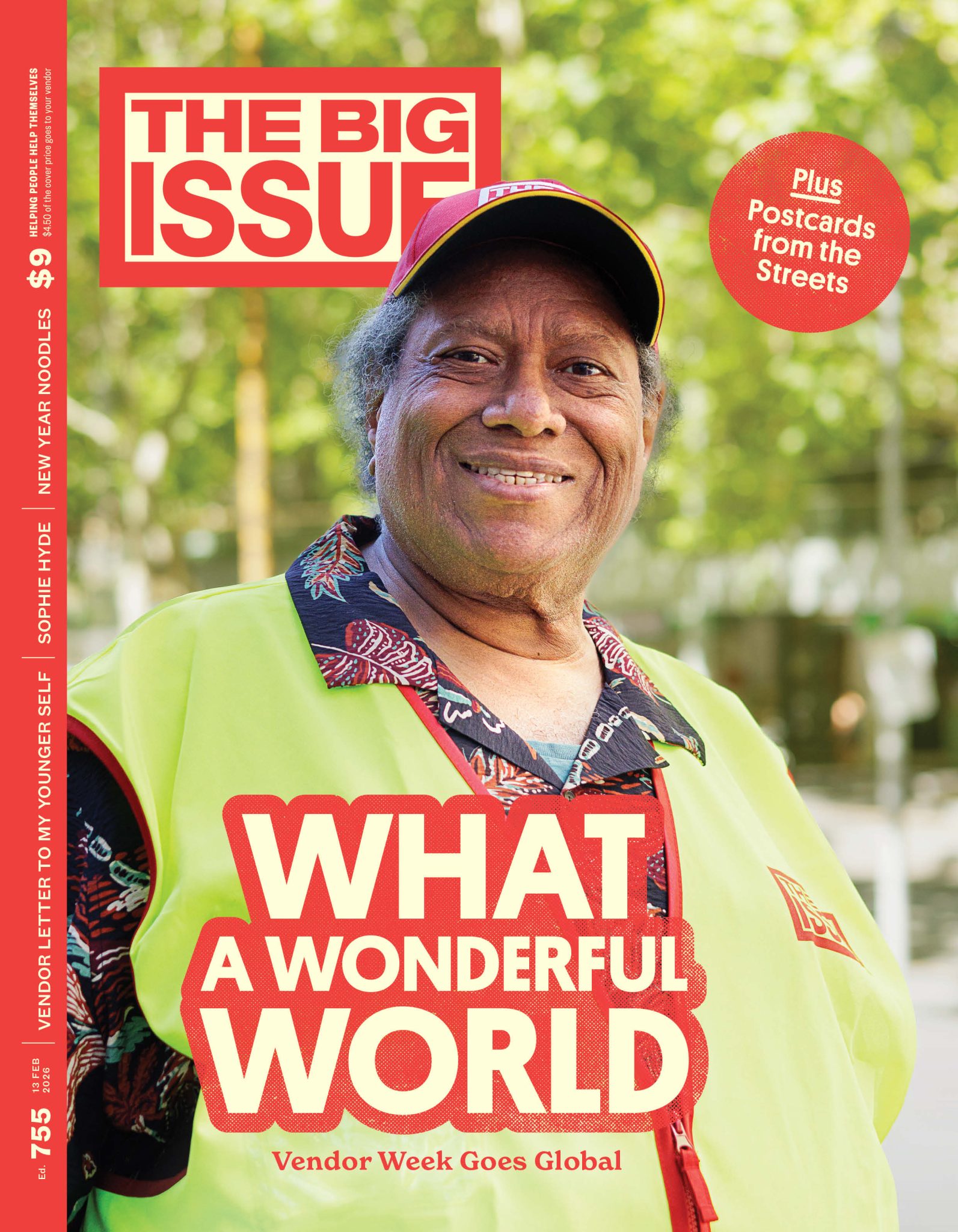On holidays in Santorini, Jenny Sinclair takes the plunge.
One afternoon, back when we could travel, I left my family in our rented house on an island in Greece, and walked down the 238 steps to the harbour and negotiated a rocky path to where I’d been told I’d find a sandy beach to swim.
Instead, I saw a sharply jutting outcrop just offshore, and halfway up it, three young people standing on a platform. Suddenly one launched into the air and dropped into the water. Then another, then the third.
I stood, feeling the sharp scoria rocks digging into my feet, and watched a stream of young tourists climb up and make the leap.
One man, English, walked back and forth across the platform. His male friends jumped off; their girlfriends watched, filming and calling out encouragement. He ran to the edge, stopped, walked back, ran and stopped again.
As I watched, a young woman spoke to me. She asked if I was going to jump. I said I didn’t know. She said she didn’t either.
She wasn’t a tourist. I’ve forgotten her name – Eleni, perhaps. She was working there, flown in from Eastern Europe to work in the expensive hotels of Santorini.
In her early twenties, she was relaxed and friendly, and didn’t seem to notice that I was old enough to be her mother. Her afternoons were free, she told me. People had told her about this place, and she’d come to do the jump.
“I’m not so sure,” I said. “It’s pretty high.”
The English tourist was alone on the platform. We watched him standing there, unsure.
“Come on,” she said, and slipped into the water.
The water was warm, clear and soft on my skin. I’d brought my goggles and I could see down to the speckled seabed, past undersea cables and the occasional fish. I could just float about here, I thought. No need to go jumping off cliffs. Eleni swam ahead, calling back to me.
We reached the island and hauled ourselves up an old rope ladder.
The platform was six, maybe eight metres high, and roughly paved with pebbles. At the rear was a shrine, and at the front, a sweeping view across the caldera.
The young English man was still there, and as we arrived, he started to descend the rope.
Eleni and I inched forward, peered down. The jump wasn’t as simple as it looked. There was a rocky lip protruding about a metre out – you’d need to clear that to reach the water. And it was high – not Olympic diving-board high, but high enough to trigger a queasy feeling in my gut and a weakness in my knees. My palms began to sweat.
“Come on,” she said, and didn’t move.
“I don’t know,” I said again. I looked over the edge, then backed away.
“I will if you will,” she said.
“Okay,” I said, and didn’t move.
This went on for five minutes, maybe 10. I ran to the edge, propped, walked back. She did the same.
A couple of tourists climbed up, went over the edge with throaty battle cries, and swam away.
“Come on,” Eleni said, and suddenly she was gone.
I stood there, feeling like a fool. Every time I looked over the edge at the water, so far down, my fear grew. My body pulsed with it.
Eleni reappeared, soaking wet and flushed.
“It’s fine,” she said.
It didn’t feel fine. It felt like I might die.
I went back as far as I could, took a run up and skidded to a halt.
“Be careful,” Eleni said. “You could fall.”
I tried again, stopped even sooner. Eleni watched me.
“It doesn’t matter,” she said. “You don’t have to.”
Yes, I thought. I don’t have to care what people think – these tourists, this girl I’ve never met before.
I stood exposed in my baggy black one-piece, and thought about the young man who’d climbed back down. I thought about how I’d never be here again. How my family were waiting for me. I looked out at the sky, the water, the blinding sunlight, and counted down from 10.
At one, I took a breath and told myself to go.
For a moment I was suspended in the air: not on land or in the water. The blue sky was all around me. My body screamed at me: what have you done? Where is the ground?
I hit the water hard and surfaced spluttering. I saw Eleni jump again, falling, silhouetted in the sunlight.
She came up beside me and said: “Do you want to go again?”
“No,” I said. “I don’t need to.”
We swam to the shore, walked around the island’s base, and began to climb the steps.
That jump took perhaps a single second. But in the five years since, I’ve gone back to it again and again when courage is required. Because I didn’t die, no matter what my fear was saying. Because a random stranger stood beside me and gave me strength. Because I jumped.
Jenny Sinclair is a Melbourne writer. Her non-fiction books are Much Ado About Melbourne and A Walking Shadow.
This article first appeared in The Big Issue Ed#647.
